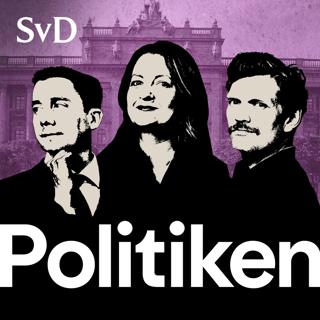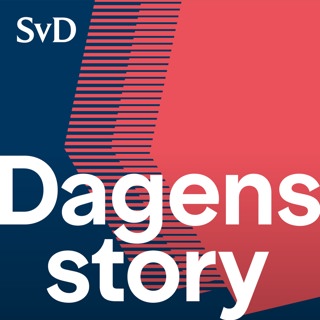
The Declaration Of Bryan Edelman In Support Of Bryan Kohberger (Part 10)
Dr. Bryan Edelman is a trial consultant and expert on pre-trial publicity who was involved in the Bryan Kohberger trial. Edelman was hired by Kohberger's defense team to conduct a phone survey of potential jurors in Latah County, Idaho. The purpose of the survey was to assess the impact of media coverage on public opinion about the case, which involves Kohberger being charged with the murder of four University of Idaho students.The survey, which contacted 400 residents, faced significant criticism from the prosecution. They argued that the questions were too specific and potentially spread false information, thereby contaminating the jury pool. Some questions included details not found in official affidavits, leading to concerns that the survey was prejudicing potential jurors against Kohberger.Edelman defended his work, stating that his aim was to measure the influence of media coverage on public opinion, regardless of whether the information was true or false. He emphasized that such surveys are standard practice in high-profile cases to determine whether a fair trial can be conducted in the current venue or if a change of venue is necessary.The controversy surrounding the survey led the judge to pause its continuation and to schedule further hearings to decide on the matter.In this episode we take a look at his declaration filed with the court.(commercial at 8:05)to contact me:bobbycapucci@protonmail.comsource:072224-Memorandum-Support-MCoV.pdfBecome a supporter of this podcast: https://www.spreaker.com/podcast/the-moscow-murders-and-more--5852883/support.
29 Dec 202511min

The Declaration Of Bryan Edelman In Support Of Bryan Kohberger (Part 9)
Dr. Bryan Edelman is a trial consultant and expert on pre-trial publicity who was involved in the Bryan Kohberger trial. Edelman was hired by Kohberger's defense team to conduct a phone survey of potential jurors in Latah County, Idaho. The purpose of the survey was to assess the impact of media coverage on public opinion about the case, which involves Kohberger being charged with the murder of four University of Idaho students.The survey, which contacted 400 residents, faced significant criticism from the prosecution. They argued that the questions were too specific and potentially spread false information, thereby contaminating the jury pool. Some questions included details not found in official affidavits, leading to concerns that the survey was prejudicing potential jurors against Kohberger.Edelman defended his work, stating that his aim was to measure the influence of media coverage on public opinion, regardless of whether the information was true or false. He emphasized that such surveys are standard practice in high-profile cases to determine whether a fair trial can be conducted in the current venue or if a change of venue is necessary.The controversy surrounding the survey led the judge to pause its continuation and to schedule further hearings to decide on the matter.In this episode we take a look at his declaration filed with the court.(commercial at 8:05)to contact me:bobbycapucci@protonmail.comsource:072224-Memorandum-Support-MCoV.pdfBecome a supporter of this podcast: https://www.spreaker.com/podcast/the-moscow-murders-and-more--5852883/support.
28 Dec 202510min

Epstein Files Unsealed: The Ghislaine Maxwell 2019 SDNY Grand Jury Transcript (Part 3) (12/28/25)
The newly unsealed New York grand jury materials related to Ghislaine Maxwell provide a clearer window into how federal prosecutors built the case that ultimately led to her conviction. The documents outline the scope of witness testimony, evidentiary focus, and investigative priorities considered by the grand jury, reinforcing that Maxwell was not viewed as a peripheral figure but as a central facilitator within Jeffrey Epstein’s trafficking operation. While much of the material aligns with facts already established at trial—including patterns of recruitment, grooming, and abuse—the unsealing confirms that prosecutors presented a structured, victim-centered narrative to the grand jury well before Maxwell’s arrest, countering claims that the case was rushed or politically motivated.At the same time, the documents have drawn attention for what they do not contain. The grand jury materials remain narrowly focused on Maxwell’s conduct and charges, offering little insight into why broader conspiracy cases against other Epstein associates were never pursued in New York. This has fueled renewed scrutiny of prosecutorial discretion and investigative limits, as the records show a deliberate effort to secure Maxwell’s indictment while leaving larger questions about Epstein’s network unresolved. For critics and survivors alike, the unsealing represents both a measure of long-delayed transparency and a reminder of how much of the Epstein story remains outside the bounds of criminal accountability.to contact me:bobbycapucci@protonmail.comBecome a supporter of this podcast: https://www.spreaker.com/podcast/the-moscow-murders-and-more--5852883/support.
28 Dec 202512min

Donald Trump And The Epstein Related Christmas Day Crash Out On Truth Social (12/28/25)
Donald Trump’s Christmas Day Truth Social rant about Jeffrey Epstein read less like a calm denial and more like a public meltdown. While insisting—yet again—that Epstein was essentially a “hoax” story inflated by political enemies and the media, Trump spent an extraordinary amount of time angrily revisiting the scandal, attacking “sleazebags,” and lashing out at anyone still asking questions. The sheer intensity of the post undercut its own premise: if Epstein were truly irrelevant or fabricated, there would be no reason for a former president to devote a holiday screed to him. Instead, Trump’s tone was defensive, erratic, and fixated, suggesting a man who cannot let the subject go despite claiming it doesn’t matter.More striking was what Trump did not do. Rather than welcome transparency or call for the full, unredacted release of Epstein-related records—something that would theoretically put the issue to rest—he defaulted to grievance and bluster. The post reinforced a long-running pattern in Trump’s Epstein rhetoric: deny, deflect, attack, but never resolve. By crashing out publicly on Christmas over a figure he claims is meaningless, Trump once again highlighted the contradiction at the center of his narrative, fueling skepticism and ensuring that Epstein remains a live issue rather than a closed chapter.to contact me:bobbycapucci@protonmail.comsource:Trump rails against ‘sleazebags who loved Jeffrey Epstein’ in latest Christmas message | New York PostBecome a supporter of this podcast: https://www.spreaker.com/podcast/the-moscow-murders-and-more--5852883/support.
28 Dec 202513min

Epstein Files Unsealed: The Ghislaine Maxwell 2019 SDNY Grand Jury Transcript (Part 2) (12/28/25)
The newly unsealed New York grand jury materials related to Ghislaine Maxwell provide a clearer window into how federal prosecutors built the case that ultimately led to her conviction. The documents outline the scope of witness testimony, evidentiary focus, and investigative priorities considered by the grand jury, reinforcing that Maxwell was not viewed as a peripheral figure but as a central facilitator within Jeffrey Epstein’s trafficking operation. While much of the material aligns with facts already established at trial—including patterns of recruitment, grooming, and abuse—the unsealing confirms that prosecutors presented a structured, victim-centered narrative to the grand jury well before Maxwell’s arrest, countering claims that the case was rushed or politically motivated.At the same time, the documents have drawn attention for what they do not contain. The grand jury materials remain narrowly focused on Maxwell’s conduct and charges, offering little insight into why broader conspiracy cases against other Epstein associates were never pursued in New York. This has fueled renewed scrutiny of prosecutorial discretion and investigative limits, as the records show a deliberate effort to secure Maxwell’s indictment while leaving larger questions about Epstein’s network unresolved. For critics and survivors alike, the unsealing represents both a measure of long-delayed transparency and a reminder of how much of the Epstein story remains outside the bounds of criminal accountability.to contact me:bobbycapucci@protonmail.comBecome a supporter of this podcast: https://www.spreaker.com/podcast/the-moscow-murders-and-more--5852883/support.
28 Dec 202512min

Mega Edition: Ghislaine Maxwell And The Deposition That Led To Her Arrest (Part 13-14) (12/27/25)
In a videotaped deposition taken in April 2016, Maxwell was questioned under oath about Giuffre’s allegations of being groomed and trafficked by Epstein and Maxwell—allegations that she vehemently denied, calling Giuffre an “absolute liar” and asserting she had no involvement in recruiting or abusing her. Maxwell repeatedly refused to answer questions about alleged sexual activity with minors—labeling them as inquiries into “consensual adult sex”—and insisted she had no knowledge of underage abuse. She denied any wrongdoing or participation in Epstein’s trafficking network, attempting to distance herself from all aspects of Giuffre’s claims.Critics and federal prosecutors later pointed to this deposition as a key piece of evidence in her criminal indictment: they argue Maxwell knowingly made false statements under oath, which became the basis for two counts of perjury in her 2021 criminal charges. Despite her denials, corroborating evidence—including testimony about threesomes with minor girls, flight logs, and recruitment patterns—cast serious doubt on her credibility. Giuffre’s suit was ultimately settled in 2017, reportedly for millions of dollars, but the unsealed deposition—and Maxwell’s fierce denials—now serve as a stark contrast to the weight of testimony and documentation later vetted in court.source:Ghislaine Maxwell Deposition Transcript - DocumentCloudBecome a supporter of this podcast: https://www.spreaker.com/podcast/the-moscow-murders-and-more--5852883/support.
28 Dec 202527min

Mega Edition: Ghislaine Maxwell And The Deposition That Led To Her Arrest (Part 11-12) (12/27/25)
In a videotaped deposition taken in April 2016, Maxwell was questioned under oath about Giuffre’s allegations of being groomed and trafficked by Epstein and Maxwell—allegations that she vehemently denied, calling Giuffre an “absolute liar” and asserting she had no involvement in recruiting or abusing her. Maxwell repeatedly refused to answer questions about alleged sexual activity with minors—labeling them as inquiries into “consensual adult sex”—and insisted she had no knowledge of underage abuse. She denied any wrongdoing or participation in Epstein’s trafficking network, attempting to distance herself from all aspects of Giuffre’s claims.Critics and federal prosecutors later pointed to this deposition as a key piece of evidence in her criminal indictment: they argue Maxwell knowingly made false statements under oath, which became the basis for two counts of perjury in her 2021 criminal charges. Despite her denials, corroborating evidence—including testimony about threesomes with minor girls, flight logs, and recruitment patterns—cast serious doubt on her credibility. Giuffre’s suit was ultimately settled in 2017, reportedly for millions of dollars, but the unsealed deposition—and Maxwell’s fierce denials—now serve as a stark contrast to the weight of testimony and documentation later vetted in court.source:Ghislaine Maxwell Deposition Transcript - DocumentCloudBecome a supporter of this podcast: https://www.spreaker.com/podcast/the-moscow-murders-and-more--5852883/support.
28 Dec 202527min

Mega Edition: Ghislaine Maxwell And The Deposition That Led To Her Arrest (Part 9-10) (12/27/25)
In a videotaped deposition taken in April 2016, Maxwell was questioned under oath about Giuffre’s allegations of being groomed and trafficked by Epstein and Maxwell—allegations that she vehemently denied, calling Giuffre an “absolute liar” and asserting she had no involvement in recruiting or abusing her. Maxwell repeatedly refused to answer questions about alleged sexual activity with minors—labeling them as inquiries into “consensual adult sex”—and insisted she had no knowledge of underage abuse. She denied any wrongdoing or participation in Epstein’s trafficking network, attempting to distance herself from all aspects of Giuffre’s claims.Critics and federal prosecutors later pointed to this deposition as a key piece of evidence in her criminal indictment: they argue Maxwell knowingly made false statements under oath, which became the basis for two counts of perjury in her 2021 criminal charges. Despite her denials, corroborating evidence—including testimony about threesomes with minor girls, flight logs, and recruitment patterns—cast serious doubt on her credibility. Giuffre’s suit was ultimately settled in 2017, reportedly for millions of dollars, but the unsealed deposition—and Maxwell’s fierce denials—now serve as a stark contrast to the weight of testimony and documentation later vetted in court.source:Ghislaine Maxwell Deposition Transcript - DocumentCloudBecome a supporter of this podcast: https://www.spreaker.com/podcast/the-moscow-murders-and-more--5852883/support.
28 Dec 202539min





















